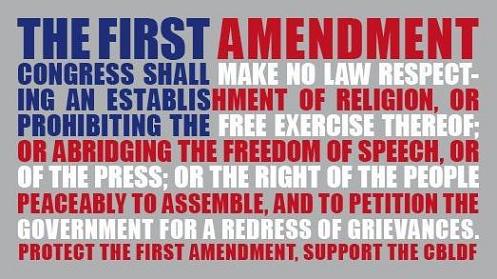Remember how I reported that I’d been sued again for defamation? Justice Duane Hart in Queens had ripped Dr. Michael Katz a new one in open court for acting like Pinocchio. And the good doctor, not being able to sue the judge for calling him a “liar” about 25 times or so, figured he would sue me instead for reporting it. (Shooting the Messenger (I’ve Been Sued Again))
Both Scott Greenfield (Turkewitz Sued By “Liar” Doctor, Michael Katz) and Marc Randazza (Judge Admonishes Expert Witness – Expert Witness Sues Blogger Who Reported On It) mocked the lawsuit.
Well, the motion to dismiss was filed this morning. And with it, the motion for sanctions. Against both the doctor and the lawyers who drafted this misbegotten, ill-advised, mongrel of a suit destined for the trash heap of history.
Having sued me on five separate causes of action, the memo runs a bit long. But this is the lede from the Memo of Law:
Last year Justice Duane Hart in Queens made numerous acidic comments about well-known defense orthopedist Michael J. Katz, calling him a liar at least 25 times (among other things). Eric Turkewitz reported on these extraordinary court proceedings on his law blog. Since Katz can’t sue the judge, he sued Turkewitz instead for reporting on what the judge said, claiming defamation, as well as a kitchen sink of other claims based on the exact same protected conduct. Not only must the case be dismissed since such reportage is absolutely protected by the law, but sanctions should be imposed against the plaintiffs for each of the clearly frivolous claims.
Part of that kitchen sink of claims that were alleged, to act as a bastard surrogate for defamation, is prima facie tort. About this, the brief says:
Prima facie tort was designed to provide a remedy for intentional and malicious actions that cause harm and for which no traditional tort provides a remedy. It is not a catch-all alternative for every grievance, annoyance, gripe and squawk that is not independently viable. There is no cause of action for saying mean things about someone on the Internet. Not in this country.
For those that care about the sanctions part, and what it means in New York, the brief gets there at page 28 after deconstructing each of the causes of action, and includes this piece:
It is important to note that the CPLR sanctions are set at $10,000 per prevailing party and each individual claim. For the purposes of this matter, there are two plaintiffs and two defendants and five frivolous claims, thus subjecting the plaintiffs to as much as $200,000 in costs under CPLR 8303-a. A long analysis of this subject was done by Justice Lebedeff in In Re Entertainment Partners Group, Inc. v. Davis,.
The complaint he filed is here, where Katz confesses in exquisite and meticulous fashion about the judicial reaming he got. You’ll find it on pages 15-30. Yeah, you read that right, it took him 15 pages to describe all the times he was called a liar.
Having confessed, conceded, declared, attested and otherwise sung to the world that Justice Katz did, in fact, call him a liar, it is remarkable that any lawyer would take this matter and sue me for reporting on what happened in court. Any lawyer worth a damn knows the suit is empty, which means to me that the only logical reason it could have been taken is either because Katz offered the firm enough money to do so, or Katz is a friend/relative of someone at the firm. But friends don’t let friends file frivolous suits.
Which is why the most important word a lawyer needs to know is “no.” Placing your client, and yourself, in the line of fire for sanctions is, as we say in legalese, an ill-considered, imprudent, insane, misguided, half-baked, bird-brained, blockheaded, short-sighted and otherwise dumb-ass thing to do. I’ve said this before my friends, and I’ll say it again: I have a thesaurus and I’m not afraid to use it.
For those that care about such things, this is the transcript of the original testimony on April 12 2013.
The transcript of the July 1st proceeding is here.
The transcript of the July 8th proceeding is here.
A supporting affidavit from my counsel is here.
The video of the one minute and 56 second exam that Katz did was up on YouTube, but YouTube took it down, despite it being part of a legal proceeding.
——————


